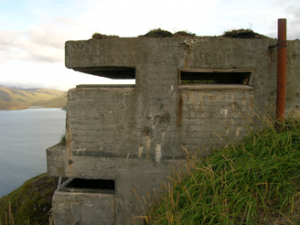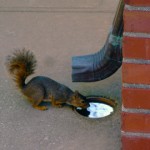Lisa Phillips, Guest Contributor
This post is part of a series on SRPR’s ongoing and evolving conceptualization of the Poetics of Emplacement. What do we mean by Poetics of Emplacement? SRPR’s editor, contributing editors, staff members and friends share their thoughts here.
Establishing an appreciation (or awareness) for what a “poetics of emplacement” might look like, or evoke, one that is grounded in understandings of place as a process in flux that is both open to interpretation and revision seems salient to the discussion I see evolving on SRPR’s blog. A poetics of emplacement, to my mind, is entangled with the recognition that places can be in Altha Cravey and Michael Petit’s words “spatially organized as confining . . . manifest a way of knowing, and places are often objects of power created to further particular forms of domination based on gender, sexuality, race, age, class, and physical ability” (102). A “dedication to place . . . better understood as an interest in emplacement” brings forth a nested arrangement of relations both social/historical and geographical/geophysical.
Because I am not familiar with what a poet’s notion of emplacement might be, (and I’m curious) I had to look up the word “emplacement” and its verb form “emplace” to determine the etymological context of the word. On one hand, the word emplacement means the action of placing in a certain position and the condition of being so placed (OED). On another hand, the word relates to placement of a building, a situation, a position. More disconcerting, for me at least, emplacement is a militaristic term meaning a platform for guns replete with defensive epaulements that afford cover from enemy attack. The poetics of emplacement then can be imagined as both a defensive move and an action taken toward others be they foes or friends.
While I would like to imagine a world in which there were only friends that would indeed be a provincial naïveté. Given that the SRPR’s editor wishes “to make it clear that a contemporary and theoretically informed recuperation of place-based poetics is hardly provincial” it may be fitting to consider how emplacements are built to protect and defend borders, for they are not designed to be attacked from behind. That an emplacement will surely have a blind spot or two makes diffractive reading necessary. Diffraction à la Karen Barad assumes that we will not be able to see everything at once. The idea ought to encourage us to look forward to new situations and positions that afford us alternative perspectives. The pages of SRPR provides me the opportunity to do just that as a rhetor with poetic affinity.
Thanks for an inspiring issue of SRPR.
In case you were wondering what an emplacement looks like . . .
WWII Aleutian Island Emplacement. Unalaska, AK.
(From http://www.city-data.com/forum/alaska/417413-term-alaskan-22.html)
Work Cited:
Cravey, Altha J., and Michael Petit. “A Critical Pedagogy of Place: Learning Through the Body.” Feminist Formations 24.2 (2012): 100-19. Project Muse. Web. 22 June. 2013.
≅
Lisa Phillips is a doctoral candidate in English at Illinois State. One part of Phillips likes to talk about her accomplishments with other folks who are not that curious, and another part of Phillips is humbled by what other folks do despite enormous obstacles. Middle ground is useful…”I write about things that occur to me, and I try not to embarrass people.” If you’re curious, you ask more questions. If you’re not, you won’t.



